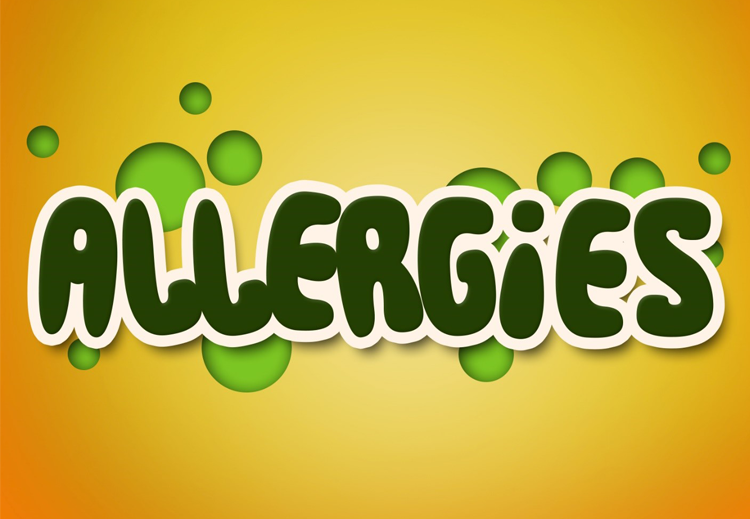
☰ Menu
Menu
June 4, 2020 | 8:42 am

It is our immune system’s response to foreign substances in the air and on surfaces, from the products we use, from insects or animals, and from the food we eat. This may cause inflammation on the skin, sinuses, airways or digestive system.
Children, people with asthma, and those with family history of asthma and allergies have higher risk of developing an allergy.
Our bodies respond differently from allergens; some may be mild, but some can be life threatening, too. It is important to know how to relieve allergy symptoms for mild and severe allergic reactions.
Types of allergies & their symptoms:
| Type of allergy | Caused by | Symptoms |
| Allergic Rhinitis | Airborne allergens |
|
| Food Allergy | Certain foods |
|
| Insect Sting Allergy | Insect bites/stings |
|
| Drug Allergy | Medicines |
|
| Skin Allergy | Substance on surface, clothes and products |
|
It is a severe allergic reaction that can lead into shock and is a life-threatening medical emergency.
A person experiencing anaphylaxis should be brought to the nearest emergency room and be given an epinephrine shot. The management of anaphylaxis is complicated and should be consulted with an allergology and immunology consultant.
Avoid known triggers of your allergic reactions.
Record the activities, food, medicines and other factors that causes or worsens your allergic reactions and what alleviates it. This will help you and your doctor in identifying the triggers.
Severe allergic reactions can sometimes affect your ability to communicate. Wearing a medical bracelet can help to inform your first responders that you have a severe allergy.
Resources:
———————————————————————————————————————————————————-
Disclaimer:
All content found on the DLSUMC website, including text, graphics, images, audio or other formats were created for general informational purposes only and are not intended or implied to be substitutes for professional medical advice, diagnosis or treatment.
If you think you may have a medical emergency, call your doctor, go to the emergency department, or call your local emergency hotline immediately.
Other Health Articles